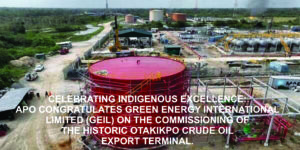Shell Faces Major Legal Battle Over Ultra-Deep Drilling Project in South Africa
Shell is confronting a significant legal challenge that could derail its ambitious offshore drilling plans in South Africa, as environmental groups mount a formal appeal against government authorization for what would become the world’s third deepest offshore well.
The controversy centers on Shell’s Northern Cape Ultra Deep (NCUD) oil and gas project, which recently received environmental authorization to drill up to five deep-water wells off South Africa’s west coast. The project would see Shell drilling 3,200 metres below sea level under crushing pressure conditions in perpetual darkness and near-freezing temperatures.
A coalition of environmental groups, including Green Connection, Natural Justice, and several West Coast communities, has launched the appeal, claiming Shell’s Environmental and Social Impact Assessment Report (ESIAR) is fundamentally flawed and riddled with omissions.
Neville van Rooy, Community Outreach Coordinator at The Green Connection, raised critical concerns about emergency response capabilities, questioning how Shell received authorization without providing detailed strategies for handling potential blowouts at such extreme depths. The groups argue that the ESIAR unlawfully underestimates risks by relying on an unrealistic 20-day oil spill scenario, assuming a capping stack at Saldanha Bay could be installed within that timeframe despite its inability to reach such depths.
The appeal highlights that only three capping stacks globally are equipped for such depths, located in the US, UK, and Singapore, with serious questions about rapid deployment to South Africa. Environmental groups point out that Shell’s own estimates for the shallower Perdido project at 2,450 metres depth were 100 days, making the 20-day assumption appear severely inadequate.
Additional concerns include the lack of consultation with affected communities and failure to consider cumulative impacts with up to 20 other wells already authorized along the West Coast. The groups argue these violations breach constitutional requirements and undermine proper environmental assessment.
Source: businesstech.co.za





